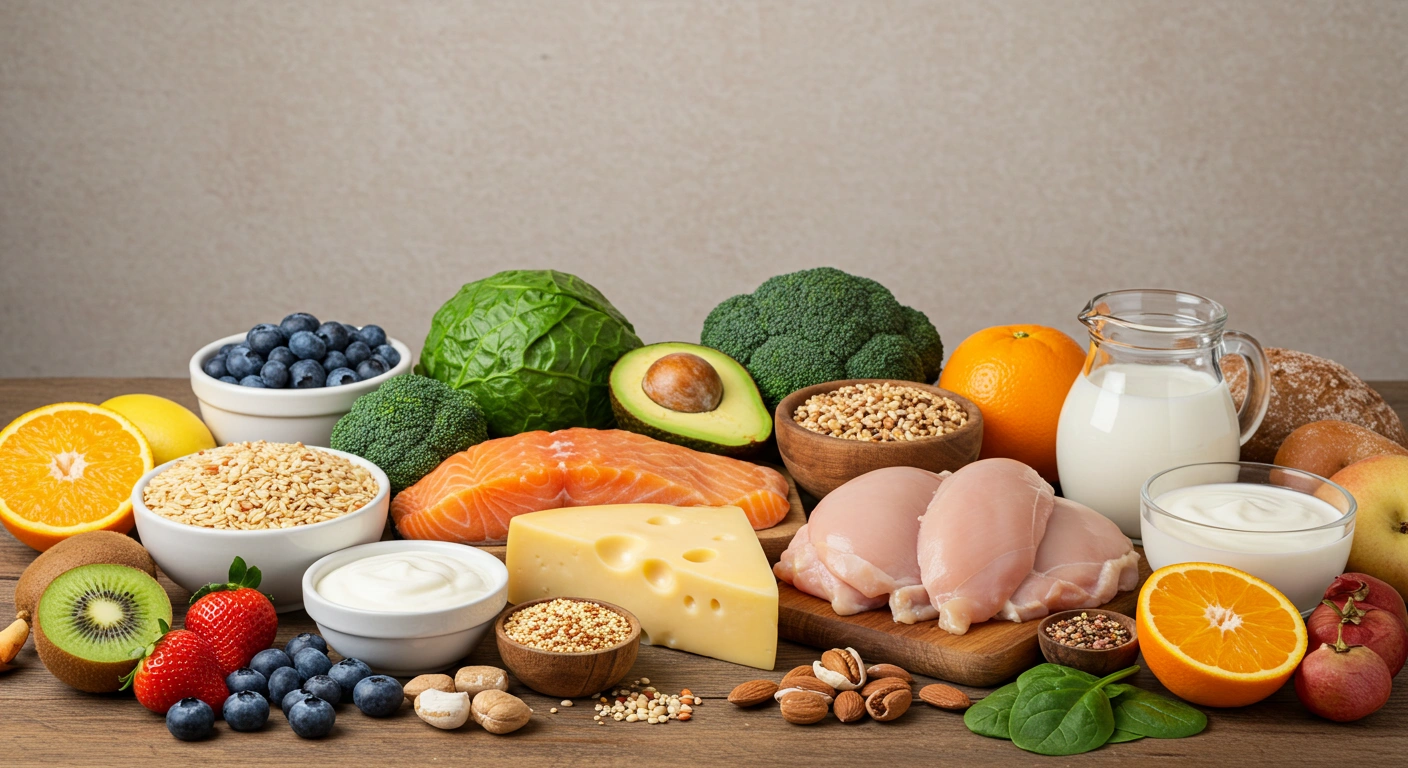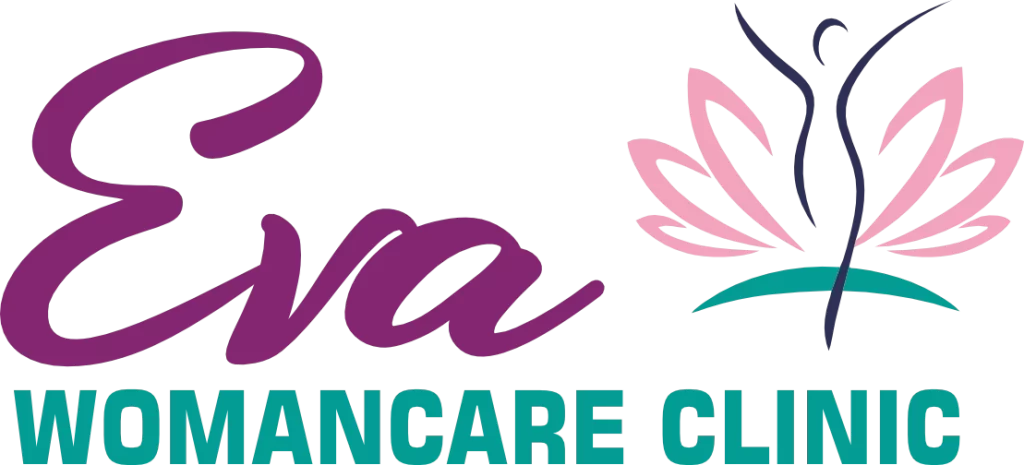One day, it’s dry toast and lemon water. The next it’s a desperate search for pickles at 2 a.m. Pregnancy eating can feel like a rollercoaster with your body, your brain, and your taste buds all trying to take the wheel.
Everyone has advice. Most of it is conflicting.
You’re told to eat more, but not too much. Cut out spicy food, but don’t skip the nutrients. Drink milk, but not cold. The noise is constant, and the decisions still land on your plate.
At Eva Woman Care Clinic, we understand how overwhelming pregnancy nutrition can be. The goal is not perfection. It’s a balance. And that balance begins with understanding what your body really needs, trimester by trimester, day by day.
Core Nutrition Principles for Pregnancy
Pregnancy is not about eating twice as much; it’s about eating smart.
Your body’s nutritional needs increase, but that does not mean portion overload. It means choosing meals that give you sustained energy, essential nutrients, and digestive support.
Macronutrients Matter
- Carbohydrates fuel your body and help stabilise mood swings. Opt for whole grains, fruits, and cooked root vegetables.
- Proteins are the building blocks. Dals, paneer, eggs, or lean meats support both fetal development and maternal strength.
- Healthy fats like nuts, seeds, and small amounts of ghee aid brain development and keep your hormones in check.
Micronutrients Carry Weight
- Folic acid: Prevents neural tube defects. Found in spinach, oranges, and fortified grains.
- Iron: Supports blood volume and energy. Present in jaggery, lentils, and leafy greens.
- Calcium and Vitamin D: Needed for bone strength, for both mother and baby.
- Iodine, magnesium, and zinc: Often forgotten, but crucial for metabolism, thyroid health, and tissue repair.
Timing and Consistency
Regular, well-spaced meals help manage nausea, blood sugar dips, and fatigue. Skipping meals may increase discomfort or cause heartburn later in the day.
Pregnancy is demanding. Nutrition is your daily fuel, not your daily stress.
Trimester-Wise Nutrition Breakdown

Your body changes fast during pregnancy, and so do its nutritional priorities. What works in the first trimester might not cut it later on. Here’s how to adapt your food choices as each phase unfolds.
First Trimester: Build the Foundation
This phase is often about surviving the nausea while still feeding the essentials.
Focus on:
- Folate-rich foods: Oranges, spinach, rajma, and fortified cereals
- Light, frequent meals to manage queasiness
- Hydration: Coconut water, nimbu pani, and clear soups keep things moving
Avoid strong smells and heavy spices. If you’re struggling to eat, even dry toast and poha can help hold you steady.
Second Trimester: Support Growth and Strength
As energy returns, appetite often improves; this is when the baby’s bones, muscles, and brain begin serious development.
Prioritise:
- Calcium: Found in dairy, sesame seeds, and green vegetables
- Iron: Prevents fatigue; include lentils, beets, and jaggery
- Omega-3 fats: Flaxseeds, walnuts, or low-mercury fish
- Protein variety: Mix dals, sprouts, and homemade paneer
This is the time to build strength, not just manage symptoms.
Third Trimester: Prepare for Delivery
Your baby’s weight increases rapidly now, and digestion may slow down.
Shift to:
- Smaller, protein-rich meals: Khichdi, daal soup, and multigrain rotis
- Vitamin K sources: Spinach, broccoli, eggs
- Fibre and fluids: To ease constipation and reduce swelling
Fatigue might return. That’s normal. Stick with energy-boosting snacks like bananas, sweet potatoes, or roasted nuts to stay steady through the day.
Building a Simple Indian Meal Plan
Eating well during pregnancy doesn’t require fancy recipes or imported ingredients. You just need the right combinations, a little prep, and foods that respect your routine.
A Sample Day on the Plate
Morning Start (Before Breakfast)
- Soaked almonds or walnuts
- Warm water with lime or ajwain
Breakfast
- Oats upma or poha with peas
- Idli with curd and chutney
- Herbal tea or milk
Mid-Morning Snack
- Fresh fruit like guava, papaya, or apple
- Coconut water or buttermilk
Lunch
- One bowl of dal
- Two rotis or a portion of rice
- Seasonal sabzi and a side of curd
- A few slices of salad
Evening
- Roasted chana or foxnuts
- Fresh juice or herbal tea
Dinner
- Dalia khichdi or moong dal stew
- Light subzi or soup
- One small roti or half a cup of rice
- Stewed fruit or a handful of raisins
The idea is variety, balance, and digestibility, not stuffing in calories.
Make-Ahead and Busy-Day Options
Not every day allows for perfect prep. For those on the go or managing work and home:
- Dry fruit laddoos: Easy to carry, rich in iron and protein
- Sprout salad: Prepped in advance, tossed fresh
- Roasted peanuts or makhana: Great for tea-time hunger
- Boiled eggs or paneer cubes: Fast, protein-packed snacks
- Herbal tea bags: Calming, hydrating, and caffeine-free
Eva Woman Care Clinic often shares meal ideas that work across different pregnancy stages and dietary preferences, especially for vegetarian mums looking to hit key nutrient marks.
Foods to Include and Avoid
Pregnancy is not the time for trendy diets or crash restrictions. Your body needs fuel that works hard and digests easily. Some foods strengthen you. Others? They just complicate the process.
What to Include: Everyday Nutritional Powerhouses
These foods tick multiple boxes: nutrient density, digestibility, and pregnancy-safe profiles.
- Whole grains: Brown rice, bajra, and jowar offer energy without sugar spikes
- Dals and legumes: Moong, masoor, and chana are rich in iron, protein, and fibre
- Dairy: Toned milk, curd, paneer for calcium and gut support
- Nuts and seeds: Almonds, walnuts, and flaxseeds are healthy fats and brain boosters
- Leafy greens: Spinach, methi, and curry leaves offer folate, iron, and vitamin K
- Fruits: Guava, papaya (ripe), banana, berries aid in digestion, boost immunity, and hydration
- Low-mercury fish (if non-vegetarian): Sardines, rohu, salmon, rich in omega-3 and protein
Keep the focus on local and seasonal. They’re easier on your body and richer in bioavailable nutrients.
What to Avoid: High Risk and Low Value
Some foods offer more risk than reward, especially when digestion, immunity, and the baby’s development are on the line.
- High-mercury fish: King mackerel, swordfish
- Unpasteurised dairy or raw eggs: Infection risk
- Deep-fried snacks: Slow digestion, bloating, and heartburn
- Highly processed packaged food: Preservatives, excess salt, and artificial colours are a big No
- Caffeinated drinks in excess: May affect sleep, hydration, and nutrient absorption
- Organ meats: High in vitamin A, which can be harmful in large doses
Food Safety Reminders That Matter
Clean eating isn’t just about what’s on the plate; it’s also how it gets there.
- Wash fruits and vegetables thoroughly
- Store leftovers in airtight containers
- Reheat food until it is piping hot before eating
- Use pasteurised dairy products only
- Avoid street food during pregnancy, no matter how tempting
Pregnancy lowers your body’s natural immune guardrails. Keeping your food clean and safe is just as important as what you’re eating.
Managing Pregnancy Symptoms Through Diet

Pregnancy brings plenty of surprises, and not all of them are pleasant. The right food choices can help ease common symptoms without relying entirely on pills or guesswork.
Nausea and Vomiting
One of the most common early challenges.
To ease it:
- Start your day with dry toast, crackers, or soaked almonds
- Sip ginger water or lime juice slowly
- Eat small, frequent meals to avoid an empty stomach
- Stick to plain, lightly spiced foods like khichdi, idli, or sabudana often work well
Avoid strong smells, heavy oils, and skipping meals, even if you’re not hungry.
Cravings and Aversions
Craving sugar? Spicy food? Something sour every two hours?
- Try healthier swaps: Jaggery instead of sweets, roasted chana instead of chips.
- Keep portions small and enjoy treats without guilt, when safe
- Aversions often pass with time. Focus on foods that feel tolerable and nutrient-dense
Sometimes, cravings have more to do with comfort than nutrition, and that is okay too.
Constipation, Heartburn, and Fatigue
These are common in the second and third trimesters and are usually manageable.
To reduce them:
- Add fibre-rich foods: papaya, soaked raisins, bottle gourd, oats
- Drink plenty of water and consider nimbu pani or ajwain water for relief
- Avoid lying down right after eating
- Break your day into light meals and snacks. This reduces bloating and improves energy flow.
The right foods can make the body feel less burdened, even when your schedule stays busy.
Nutrition Myths vs Facts
Pregnancy invites opinions from every direction. But good nutrition depends on facts, not kitchen lore or viral tips.
Myth: “You have to eat for two.”
Fact: You need more nutrients, not double the calories. In most cases, only an extra 300–500 calories are needed per day during the second and third trimesters.
Myth: “Avoid pineapple and papaya.”
Fact: Ripe versions of these fruits are safe in moderation unless your doctor advises otherwise. They offer fibre, hydration, and vital vitamins.
Myth: “Cravings mean your body is deficient in something.”
Fact: Not always. Cravings are often triggered by hormonal shifts, habits, or even emotions. Use moderation and self-awareness as your guide.
Mindful Eating Matters
How you eat is just as important as what you eat.
- Take time to chew
- Recognise when you feel full
- Avoid eating out of stress or boredom
At Eva Woman Care Clinic, we offer medical guidance that helps expecting mothers make practical, confident choices about food throughout their pregnancy.
When to Seek Professional Help
While general food advice works for many, there are times when individualised care is critical.
If you’re facing any of the following, it’s best to speak with your doctor or a dietitian trained in maternal health:
- Gestational diabetes or pre-existing diabetes
- Anaemia or consistently low energy levels
- Twin or multiple pregnancy
- Severe nausea and vomiting that affects food intake
- Rapid weight gain or loss
- Dietary restrictions (e.g. vegan, gluten-free)
When needed, your doctor may also recommend fortified foods, tailored supplements, or coordinated care with a certified dietitian. This approach reduces complications and improves long-term outcomes.
Feed Yourself, Fuel Your Baby

Food is more than fuel during pregnancy. It is one of the most direct ways to support your baby’s development and your own strength.
That doesn’t mean chasing perfection. It means making consistent, informed choices that give your body what it needs today, and prepare it for what comes next.
At Eva Woman Care Clinic, we help you cut through the confusion with clear, medically sound advice. Whether you need support for a specific health concern or simply want to check if your current meals are enough, we are here to help.
Book a consultation to make confident choices for your pregnancy nutrition, because every bite counts when you’re eating for more than just yourself.
Frequently Asked Questions
1. Should I avoid eating out completely during pregnancy?
Not entirely, but be selective. Choose clean, trusted places that serve freshly cooked meals. Avoid raw salads, unpasteurised dairy, and reheated street food. If in doubt, skip it.
2. Are traditional Indian post-meal habits like saunf or ajwain water safe during pregnancy?
Yes, in moderation. Saunf aids digestion, and ajwain can ease bloating or acidity. However, take them in small amounts and avoid them if you have existing reflux issues.
3. Is it okay to fast during pregnancy for cultural or religious reasons?
It depends on your health, stage of pregnancy, and the duration of the fast. Always speak to your doctor first. Modifications may be possible without risking nutrition or hydration.
